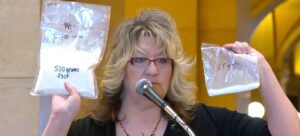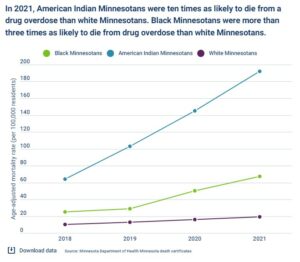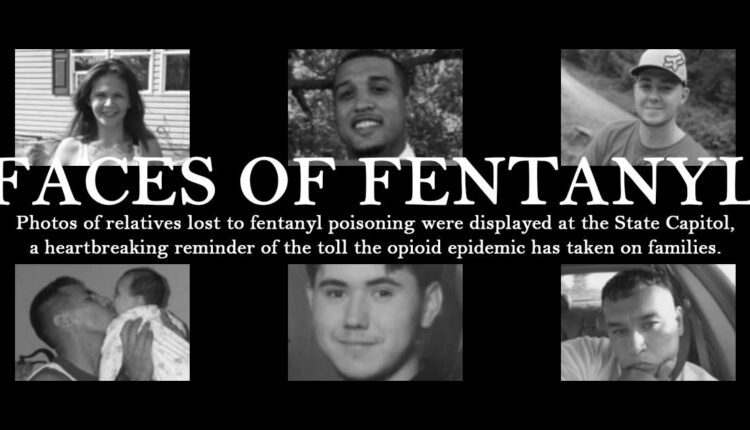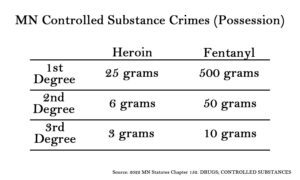The Faces of Minnesota’s Opioid Crisis: Advocates and Families Rally for Change
Advocates Push for Increased Penalties and Access to Naloxone to Save Lives
ST PAUL- Minnesota is in the grips of an opioid epidemic, with deadly overdoses reaching an all-time high and killing twice as many people as car crashes in 2021. Advocates are calling on the government to take more action to prevent deaths, including requiring schools and first responders to carry naloxone, a drug that can reverse an overdose.
Patty Bittner, an advocate for the Leech Lake Tribal Police, recently gave a powerful speech at a rally in the Minnesota State Capitol in response to the state’s opioid crisis. Bittner spoke about the devastating impact of fentanyl on the Leech Lake Reservation and the need for lawmakers to take action to slow down the flow of the drug into Minnesota.

Bittner highlighted the disparity between the penalties for fentanyl possession and those for heroin possession, arguing that the sentencing guidelines for fentanyl should be the same as those for methamphetamine and heroin. She displayed bags of sugar and flour to illustrate the amount of fentanyl a person must possess to be charged with a 1st, 2nd or 3rd degree drug possession crime compared to the amount of heroin required for the same charges.
According to the Centers for Disease Control, Fentanyl is up to 50 to 100 times stronger than morphine.
Advocates are also calling for the state government to require schools and first responders to carry naloxone, a drug that can reverse an overdose.
Governor Tim Walz’s budget proposes spending $22 million over the next two years on a Comprehensive Drug Overdose and Morbidity Prevention Act, which includes providing non-opioid pain management and expanding overdose prevention teams. Federal lawmakers are also contemplating action, with President Joe Biden calling for stronger fentanyl trafficking penalties and partnerships with delivery companies to inspect packages.
The opioid epidemic is taking a heavy toll on families and communities across Minnesota. Organizers put on the “Faces of Fentanyl” display and rally at the Minnesota State Capitol to bring attention to the crisis. Bittner recounted the story of her nephew, Demikel Nason, who became addicted to opioids after being prescribed them for a neck injury in 2019. He bought pills off the street that he thought were Percocet but were actually fentanyl, which ultimately took his life in May 2020. His picture along with the faces of hundreds of Minnesotans who have died from opioid overdoses were displayed at the State Capitol, reminding lawmakers of the urgent need for action.
As the opioid epidemic continues to ravage communities in Minnesota and across the country, it is clear that urgent action is needed. Lawmakers must take bold steps to address the crisis, from requiring schools and first responders to carry naloxone to revising sentencing guidelines for fentanyl possession. The lives of countless Minnesotans depend on it.
Additional Coverage:


